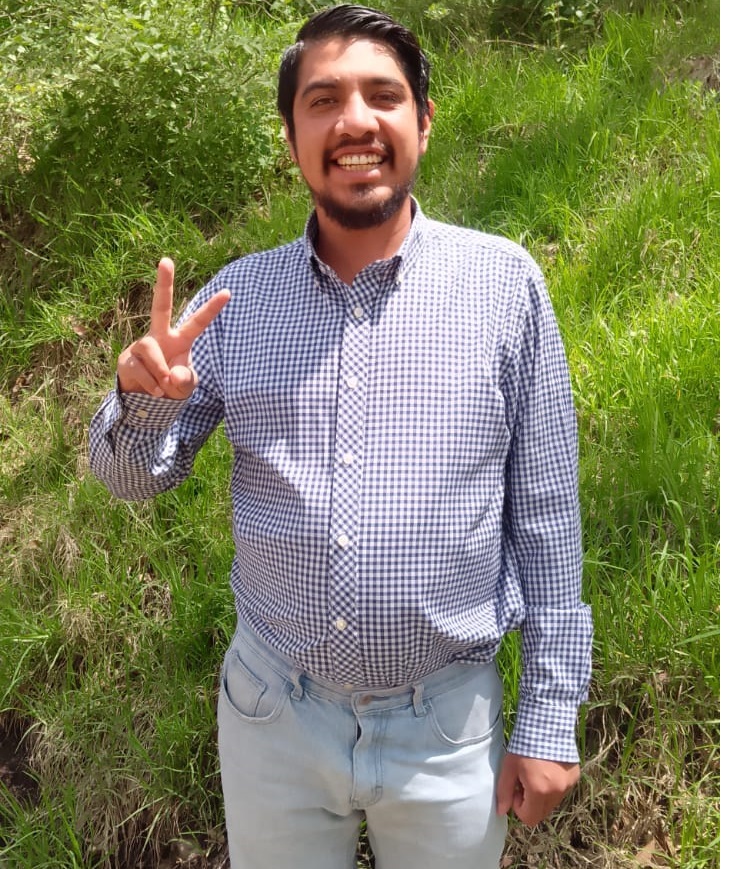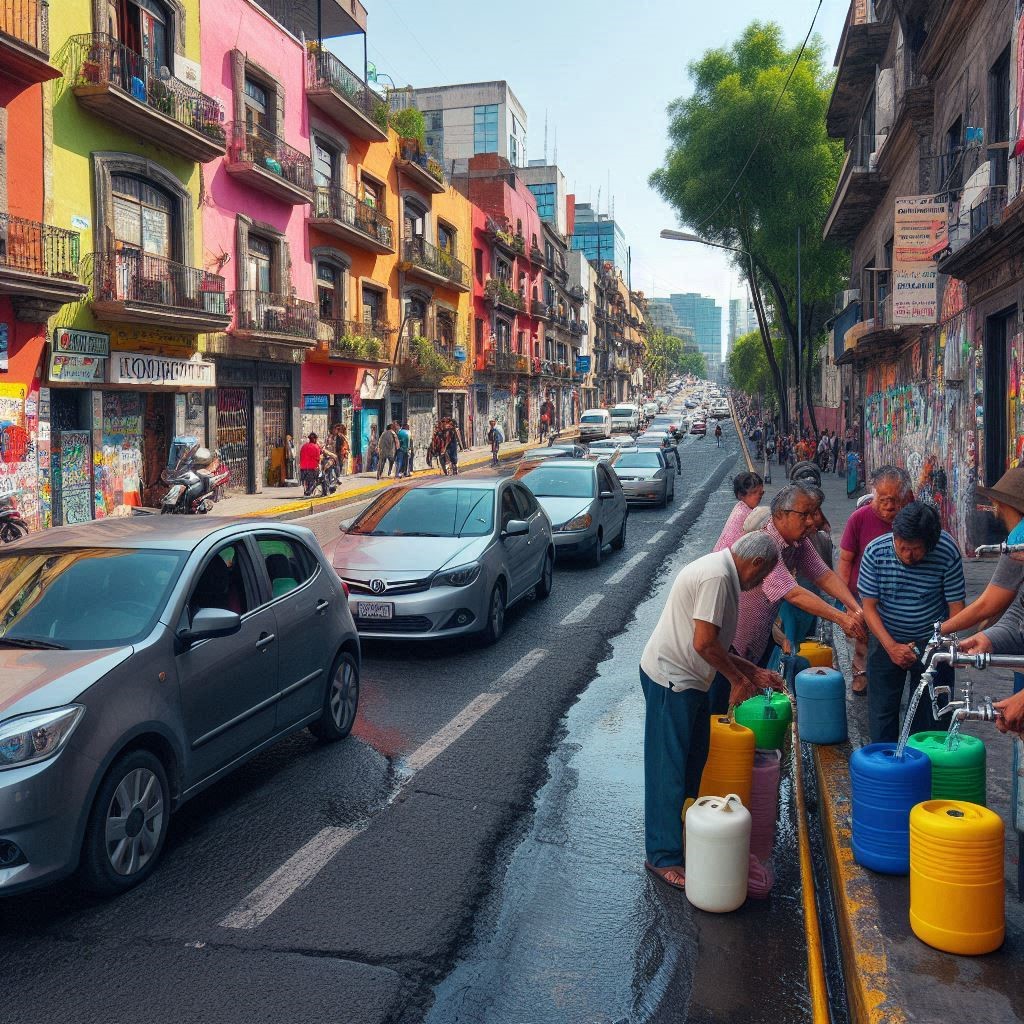By Alan Eduardo Sanchez Lara
Director of the Center for Innovation and Environmental Culture (CICA)
Introduction:
On June 2, the largest elections in the history of our country were held in Mexico, due to the number of voters and the number of elected positions that were contested. These elections were undoubtedly marked by violence and the opportunity to include the issue of climate change in the political and public agenda. This second point is what I will develop along these lines.
Climate change is part of what experts call "The triple planetary crisis" along with environmental pollution and the loss of nature and its biodiversity. These are interconnected problems that are the result of our way of life. This is a crucial moment for their attention since, according to the Intergovernmental Panel on Climate Change (IPCC), we are the last generation that can do something to mitigate this problem and, without a doubt, it is our representatives who must establish a clear line of action to address it.
But how can we do it? One way is with investments in nature, with nature-based solutions. Scientific studies have shown that natural resources can contribute more than 30% of the climate solution, every year forests absorb 1/3 of the carbon released by the burning of fossil fuels worldwide, so we need more ambitious investment to support the uptake of nature-based solutions and use the benefit of ecosystem services, in addition to an ambitious awareness and training campaign to trigger climate action among citizens.
The state policy on climate change of the elected government of Mexico City
Although there is a range of social problems, one of them in particular is a priority issue for youth, since they have included it in their agenda, and it should be a priority in decision-making. I am referring to the environmental issue, experts have identified three planetary crises: climate change, environmental pollution and the loss of biodiversity; therefore, timely and clear solutions must be provided by our governments, which address and provide solutions for the mitigation and adaptation of the citizens of CDMX to these problems.
In this context, the 2024 elections in Mexico and specifically in CDMX marked a turning point in what I personally consider to be the last opportunity we have to contribute to the environmental problem.
Given this situation, the MORENA candidate and now Mayor-elect of Mexico City, Clara Brugada, included the topic of water and promoting a sustainable city prepared for climate change within her campaign proposals and guiding principles of work.
But before continuing with the analysis of the Mayor-elect's proposals in this area, it is important to define what we understand as anthropogenic climate change, so we can define climate change as the modification of the planet's temperature derived from the excessive burning and production of greenhouse gases, which leads to the interruption and alteration of our climate, having severe droughts in some geographic areas and floods in others due to intense rains or coastal flooding.
According to the National Institute of Ecology and Climate Change “INECC”, Mexico is highly vulnerable to the ravages of global warming. In the specific case of Mexico City, 76% of the territorial demarcations, that is, the municipalities, have suffered an increase in average temperature. This leads to taking concrete decisions and actions to contribute with local solutions to this global problem.
Now that we have a slightly broader overview of what climate change is, its main causes and effects, and the vulnerability to which our country and Mexico City are exposed, we can move on to the analysis of the campaign proposals of the Mayor-elect, Clara Brugada, who within her political campaign highlighted about twenty priority axes that she would give attention to if she became the next Mayor of Mexico City. Although they are all intertwined and have a correlation with each other, we focus on the analysis of only two axes, the first being the issue of the supply of drinking water and the second being the axis of a Sustainable City that addresses the effects of climate change.
The water axis was undoubtedly a cause that Clara Brugada championed during her campaign, quoting the mayor-elect in “Interview for Enrique Villanueva on Imagen TV” she said: -Water for all, water forever- she proposed planning and defining resources for the infrastructure necessary to achieve more water for the city, she also proposed calling on all social actors to build a state policy on water, -water should unite the city and not divide it- she mentioned, but undoubtedly the most notable was the proposal to provide metropolitan responses, that is, work intergovernmentally with the federal government and the government of the state of Mexico to promptly address this problem, with an environmentalist vision, the mayor-elect maintained that rainwater, which is wasted by millions of liters when it rains, will be recovered in large reservoirs such as the Zumpango lagoon, regenerating the lakes to capture, store, make potable and return it to the city, using technology to make rainwater potable for the capital's residents.
It also aims to continue the rainwater harvesting program implemented in the previous administration by Dr. Claudia Sheinbaum.
Finally, he highlighted his proposal for the creation of a Secretariat for water management and a C5, a control and comprehensive water management center that would contribute to the care of the "water forest" and green areas.
On the other hand, the axis of a sustainable city prepared for climate change addresses the Integration and guarantee of a Basket of environmental rights, air improvement, revegetation of the city, increase in electromobility, energy transition, construction of urban gardens in the city in coordination with citizens and the creation of rural and environmental "Utopias" that provide environmental awareness among citizens.
Although it is a rather ambitious and promising action plan that addresses the short, medium and long term, global warming and the water crisis in the city must be done in an informed manner and advised by experts and academia, in addition to doing so with a co-construction approach with all interested parties for the creation of successful public policies. To do so, our future government must be open and willing to dialogue; however, it is up to all of us to do our part from our trenches, that is, citizens must have a position of teamwork for the collective good and our nature. But also a position of accountability, being informed and critical citizens, with the right to demand, but above all to contribute to the full and transparent fulfillment of all the points and proposals of our elected mayor.






